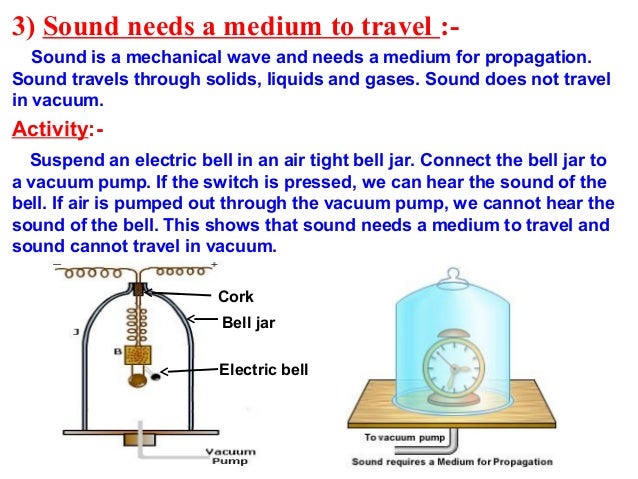Sound cannot travel in space because there is no atmosphere for it to travel through as a result space is completely silent

Sound in Space: The Audible Void

Space, the vast and mysterious expanse that surrounds our planet Earth, has always fascinated humanity. As we continue to explore the great unknown, we come across fascinating facts that challenge our perceptions of the world around us. One such intriguing fact is that sound cannot travel in space. This is due to the absence of an atmosphere for sound to propagate through, resulting in a completely silent environment.
The Role of Atmosphere in Sound Transmission

To understand why sound cannot travel in space, it is important to comprehend the role of the atmosphere in sound transmission. Sound is a form of energy that propagates through vibrations in a medium, such as air, water, or solid objects. When a sound is produced, it creates a series of compressions and rarefactions in the surrounding medium, which ultimately reach our ears as audible signals.
In Earth’s atmosphere, these compressions and rarefactions travel as waves, allowing us to hear sounds from various sources. However, in the vacuum of space, devoid of any significant atmosphere, there is no medium for sound to propagate through. As a result, the absence of air molecules prevents the transmission of sound waves, rendering space eerily silent.
Space: A Haunting Silence
Unlike the vibrant terrestrial environment, where sounds surround us at every moment, space poses a stark contrast. The desolation of space creates an atmosphere (or lack thereof) that is eerily silent. Astronauts who venture out into the depths of space often describe the silence as profound and unsettling. In the absence of sound, they rely on visual cues and the vibrations they feel through their spacesuits to maintain a sense of orientation and communication.
The Beauty of Silence
While the silence of space may seem like a void, it provides a unique perspective and offers a state of tranquility seldom experienced on Earth. The absence of sound allows for uninterrupted reflection and contemplation, enabling astronauts to connect with the vastness and beauty of the cosmos.
Moreover, the silence of space serves as a constant reminder of the vast distances between celestial bodies. In space, the vacuum acts as a barrier, blocking the transfer of sound waves and emphasizing the isolation of celestial objects. It serves as a humbling reminder of the magnitude and expansiveness of our universe.
Exploring the Depths of Silence
To delve deeper into the concept of sound in space, one can look to the experiments conducted by scientists. Researchers have tried to recreate space-like conditions on Earth by creating high-vacuum chambers. Within these chambers, they have tested various scenarios to understand the behavior of sound in the absence of an atmosphere. These experiments have led to fascinating insights and contributed to our knowledge of the physics of sound transmission.
To learn more about the scientific experiments and the role of sound in space, visit the PhysicsCentral website. It provides a comprehensive overview of the topic, shedding light on the captivating aspects of sound propagation and the influence of an atmosphere.
Sources:
Related Posts
Quick Links
Legal Stuff

